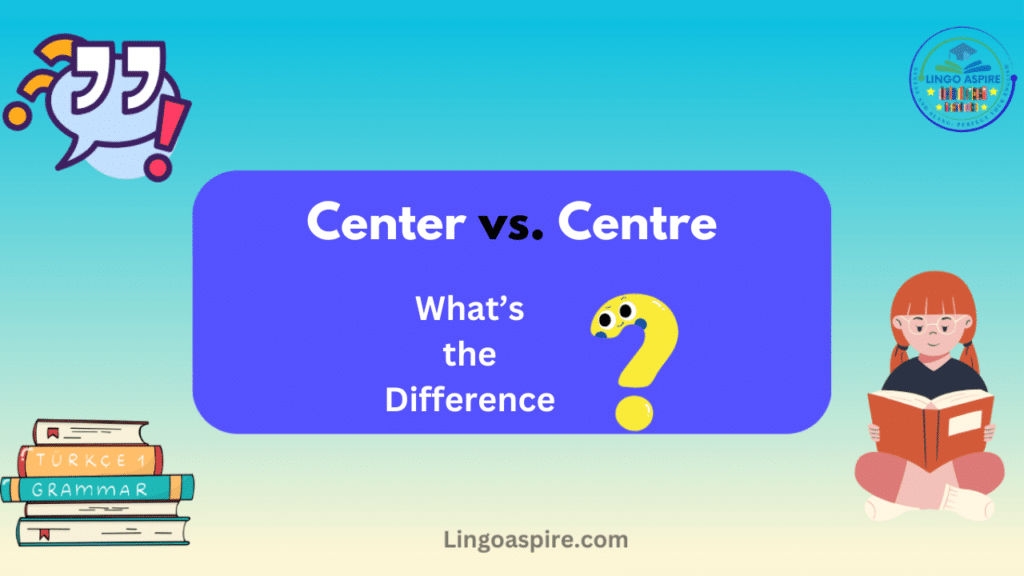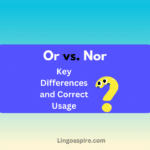Many people get confused when they see the words center and centre. Are they the same? Yes, they are. The difference comes from British spelling vs American spelling. In the U.S., the word is spelled center, while in the U.K. and other Commonwealth countries, it’s spelled centre. Both words have the same meaning, but their spelling depends on the country.
This article will explain the difference between center and centre, why the spelling changed, and how to use them correctly. We will also look at examples of center and centre in sentences and give some tips on how to remember the correct spelling for different countries.
Center vs. Centre: What’s the Difference?
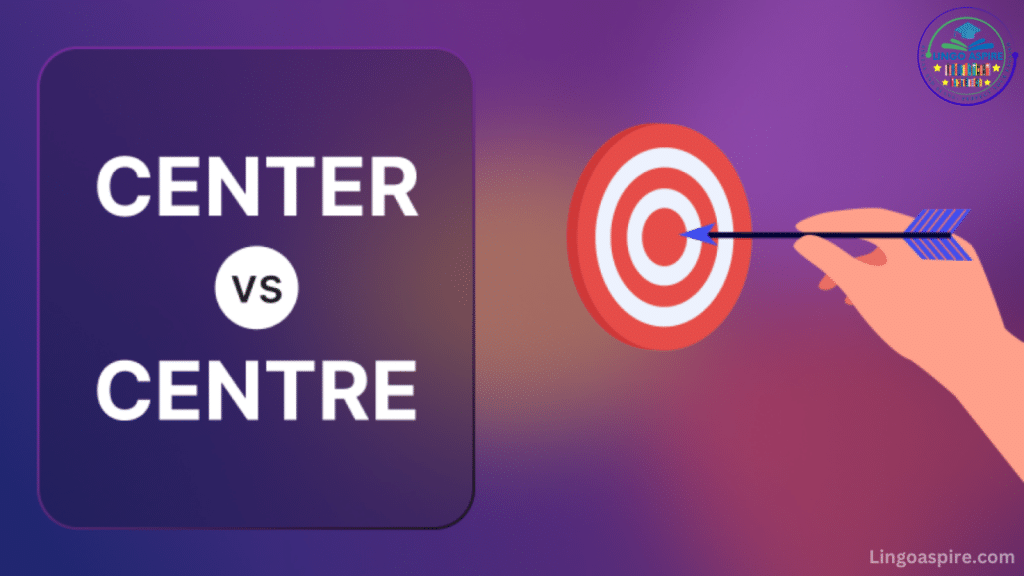
The meaning of centre and center is the same. They both refer to the middle of something. This could be a physical place, like a town center, or an abstract idea, like the center of attention. The only difference is in the spelling.
In American English vs British English, many words have spelling variations. Center or Centre is just one example. This spelling difference has historical roots and follows a pattern seen in other words like meter/metre, theater/theatre, and liter/litre.
Usage in American vs. British English
The spelling variations in English come from the way language evolved in different regions. In the U.S., “center” is the standard spelling in all contexts. Americans use “center” in schools, businesses, and official documents. It appears in phrases like “shopping center” and “data center.”
In the U.K., Canada, Australia, and other Commonwealth countries, “centre” is the preferred spelling. You will see words like “town centre,” “sports centre,” and “cultural centre” in British publications and signs. Dictionaries like the Oxford English Dictionary confirm this spelling as the standard in British English.
Comparison Table: Center vs. Centre Usage
| Country | Preferred Spelling |
|---|---|
| United States | Center |
| United Kingdom | Centre |
| Canada | Centre |
| Australia | Centre |
| India | Centre |
| South Africa | Centre |
Key Differences Between Center vs. Centre

The words “center” and “centre” refer to the same thing but are spelled differently depending on the region. Their meanings remain the same, but spelling conventions vary between American and British English. Below are the key differences:
| Aspect | Center (American English) | Centre (British English) |
|---|---|---|
| Spelling | Used in American English | Used in British English |
| Usage | Preferred in the U.S., Canada (except formal names in Canada) | Used in UK, Australia, Canada (formal use), India, South Africa |
| Pronunciation | /ˈsɛn.tɚ/ (sen-ter) | /ˈsɛn.tə/ (sen-tuh) |
| Common Examples | Shopping center, sports center, center of attention | Shopping centre, town centre, centre of attraction |
| Grammar Rules | “-er” spelling is standard in American writing | “-re” spelling follows British spelling traditions |
| Etymology | Adapted to simplified American English spelling reforms | Retained from Old French and Latin (“centrum”) |
Why the Difference?
The spelling variation exists because of Noah Webster’s spelling reforms in the 19th century, which simplified British spellings in the U.S. Centre comes from Old French and Latin, while center follows a more phonetic approach adopted in the U.S.
Synonyms for Center vs. Centre
Since “center” (American English) and “centre” (British English) have the same meaning, their synonyms are also interchangeable. Below are some commonly used alternatives:
Synonyms for “Center” and “Centre”
| Category | Synonyms | Example Usage |
|---|---|---|
| General Meaning | Middle, core, hub, nucleus, midpoint | “The city is at the core of the country.” |
| Geographical | Heart, downtown, capital, focal point | “London is the heart of the UK.” |
| Mathematical | Midpoint, median, focal point, equilibrium | “Find the midpoint of the circle.” |
| Organization/Place | Headquarters, hub, base, main office | “The tech company’s headquarters is in New York.” |
| Attention/Focus | Focus, highlight, spotlight, emphasis | “She was the focus of the meeting.” |
Real-World Examples of “Center” and “Centre”
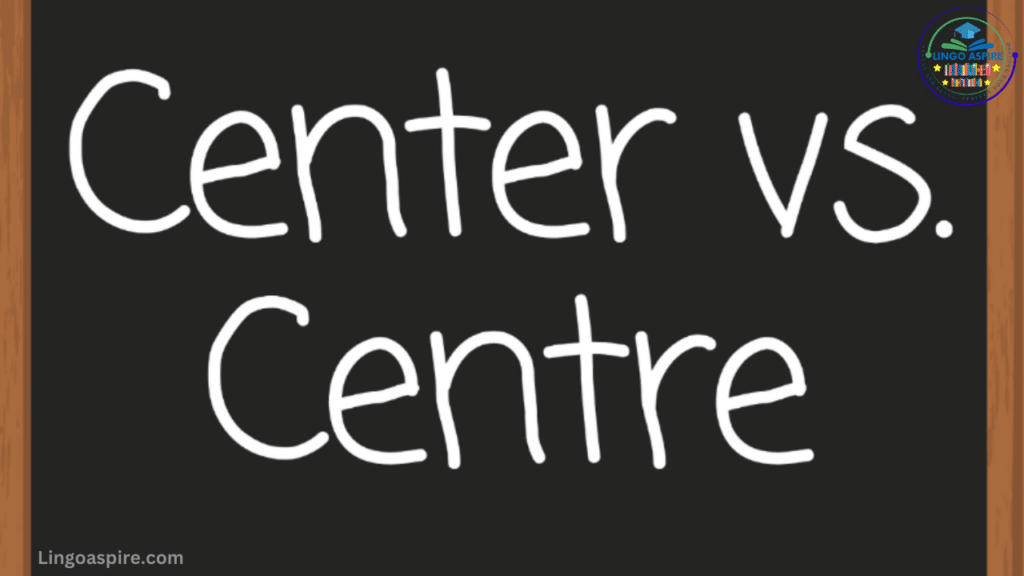
Here are examples of center and centre in sentences to help you understand how they are used:
American English:
- The shopping center has over 100 stores.
- The ball landed in the center of the field.
- He works at a research center in New York.
British English:
- The town centre was crowded with tourists.
- She registered at the local fitness centre.
- The theatre is located in the city centre.
Why the Spelling Difference Exists
The difference between center and centre comes from historical changes in the English language. In the 1800s, Noah Webster, an American lexicographer, wanted to simplify English spelling. He removed silent letters and changed complicated spellings to more phonetic ones. That is why the U.S. uses “center” while the U.K. kept the original “centre.”
Other words that followed this pattern include:
- Theater (U.S.) vs. Theatre (U.K.)
- Meter (U.S.) vs. Metre (U.K.)
- Color (U.S.) vs. Colour (U.K.)
Common Mistakes and How to Avoid Them
Many English learners and even native speakers confuse “center” and “centre”, leading to incorrect usage. Here are some common mistakes and tips to avoid them:
1. Using the Wrong Spelling for the Region
- Mistake: Writing “centre” in American English or “center” in British English.
- Correction: Use “center” for American English and “centre” for British English.
- ✅ “The shopping center is huge.” (U.S.)
- ✅ “The shopping centre is huge.” (UK)
2. Inconsistency in Spelling
- Mistake: Mixing both spellings in one document.
- Correction: Stick to one version throughout your writing. If writing for a UK audience, use “centre” consistently. If writing for a U.S. audience, use “center.”
3. Using the Wrong Spelling in Formal Names
- Mistake: Changing the spelling in proper names.
- Correction: Some places, institutions, and brands use a specific spelling, regardless of region.
- ✅ “Madison Square Garden is an entertainment center in New York.” (Official name)
- ✅ “The Toronto Centre for the Arts hosts many events.” (Official name retains British spelling)
4. Confusing “Center” as a Verb vs. Noun
- Mistake: Misusing “center” when it functions as a verb.
- Correction: “Center” (or “centre”) can be a noun (place) or verb (to focus). Use it correctly based on context.
- ✅ “The conversation centers around education.” (Verb)
- ✅ “The centre of the town is beautiful.” (Noun)
5. Ignoring Audience Preferences
- Mistake: Writing for a British audience but using American English spelling.
- Correction: Adapt to your audience when writing. If unsure, check the spelling preference in the target country.
When to Use “Center” or “Centre” in Writing
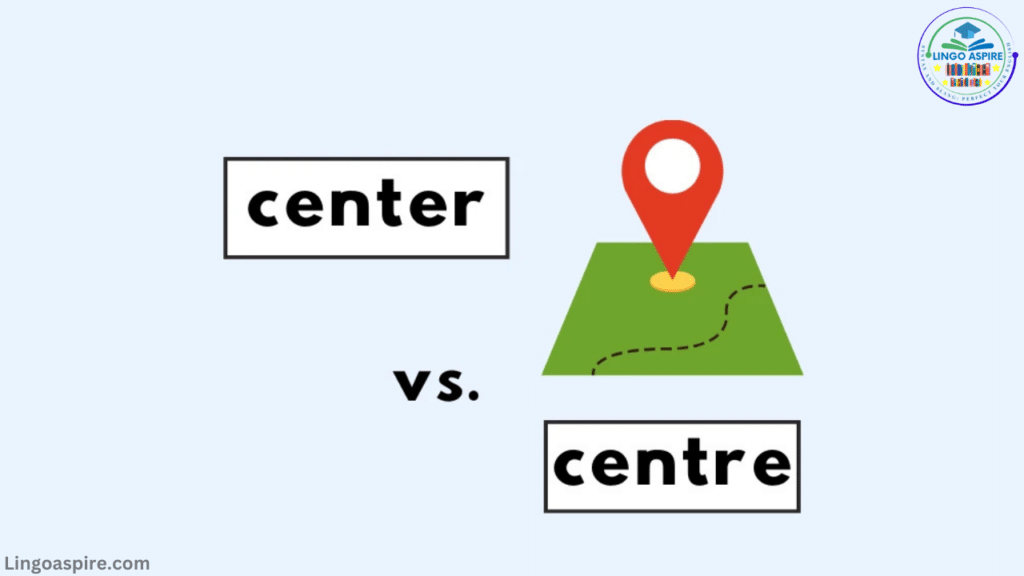
The correct spelling in different countries depends on your audience. If you are writing for an American audience, use center. Use center if you are writing for a British, Canadian, or Australian audience.
In formal writing, it’s important to be consistent. If you start using British English spelling, continue with it throughout your document. The same rule applies to American English.
Memory Tricks to Remember the Difference
Here are some grammar rules for center and centre to help you remember the correct spelling:
- “RE” at the end of “centre” is used in British English. Think of “Royal English” to remember “RE.”
- “ER” at the end of “center” is used in American English. Think of “Easier Rules” to remember “ER.”
- If you are writing in UK and US English, always check a dictionary before finalizing your document.
Frequently Asked Questions About Center vs. Centre
1. Can I use “centre” in American English?
No, American English only accepts “center.” Using “centre” in the U.S. may be seen as an error.
2. Why do some British companies use “center” in branding?
Some brands adopt American spellings to appeal to international customers. For example, “Apple Center” instead of “Apple Centre.”
3. Is “centre” disappearing due to globalization?
Not really. While American English influences global spelling, British spelling is still widely used in Commonwealth countries.
Conclusion
Understanding the difference between center and centre is important for correct spelling. Center is the standard spelling in American English, while centre is used in British, Canadian, and Australian English. Knowing these spelling variations helps in academic writing, business communication, and daily conversations.
If you’re writing for an American audience, use “center.” If you’re writing for a British audience, use “centre.” Use this guide to improve your English writing and avoid common spelling mistakes.
Sources
- Merriam-Webster Dictionary
- Provides the dictionary definition of “center” and “centre”, explaining that “center” is the American English spelling, while “centre” is the British English spelling.
- Includes pronunciation guides, historical usage, and etymology.
- Oxford English Dictionary (OED)
- Offers a detailed explanation of the British spelling vs American spelling for words like “centre” and “center”.
- Provides real-world examples of “center” and “centre” in sentences to show how they are used in different English dialects.
- Cambridge Dictionary
- Highlights the grammar rules for “center” and “centre”, their differences in meaning, and usage of “centre” and “center” in various contexts.
- Also discusses other commonly confused words in English that follow similar spelling variations in English.

